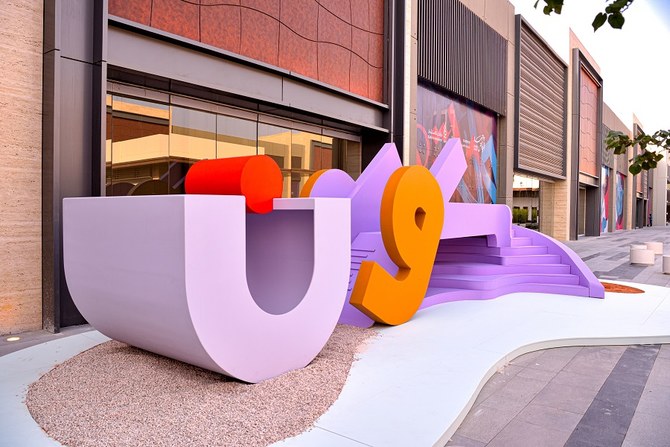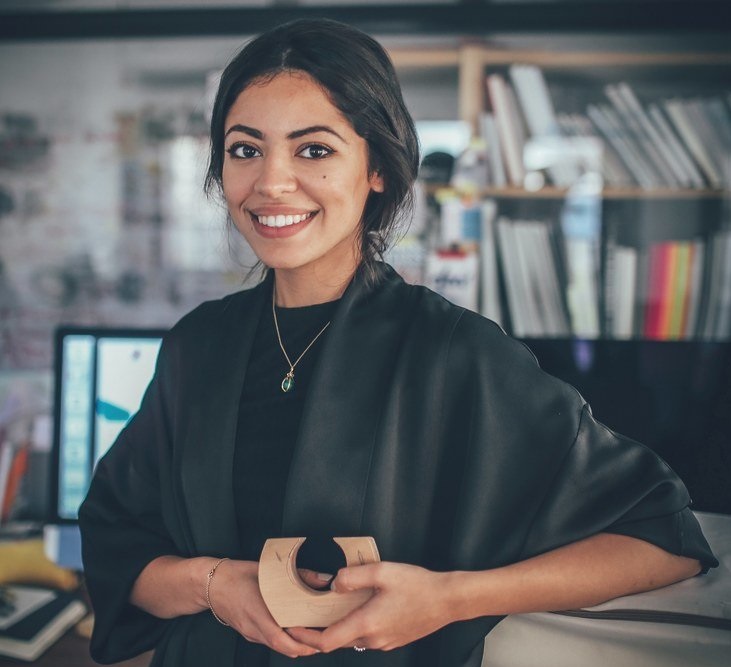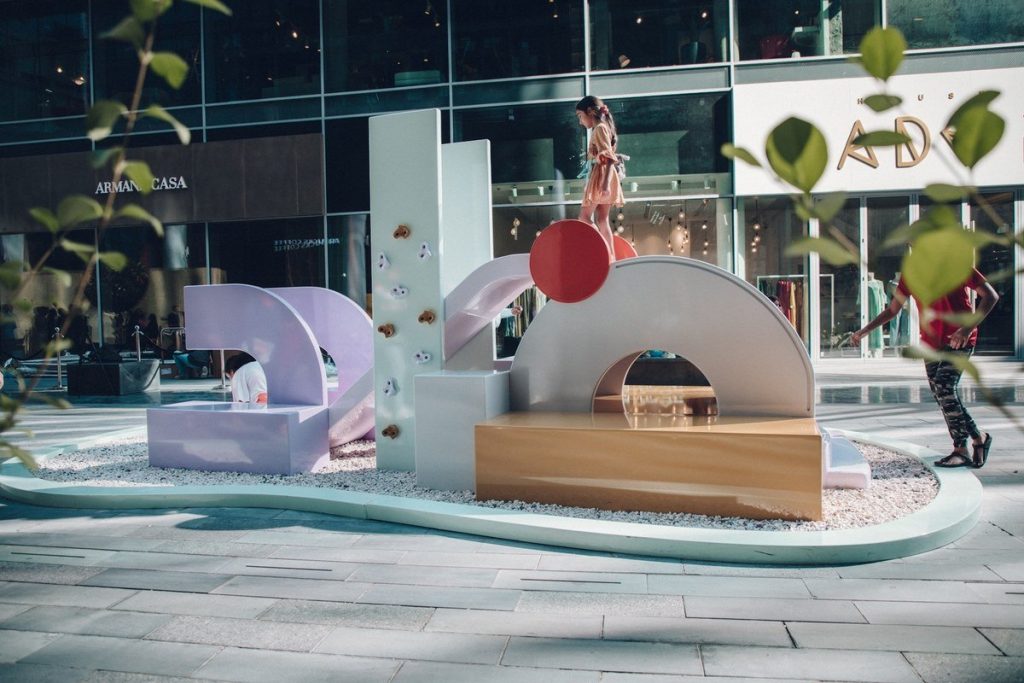





Rawaa Talass, Dubai
For Saudi Arabian designer Lujain Abulfaraj, her latest project all started with a phone call.
“One day, I received a call from my son’s nursery,” she explained. “They told me that he was crying because he didn’t want to go to Arabic class. My heart sank because I realized that he actually hates Arabic. Not only does he not know how to speak it, but he doesn’t even like it.”
Abulfaraj was speaking to Arab News at Dubai Design Week, where her innovative child-friendly project Akwan — meaning ‘universes’ in Arabic — was on display.
Along with Akwan’s co-creator, the Emirati designer Sara Al-Arif, Abulfaraj spent almost three years researching, branding and manufacturing the project, which aims to “instill the love of the Arabic language in the hearts of children” through play.
Akwan consists of colorful modern playgrounds in which the components are crafted in the shape of letters from the Arabic alphabet. Each mini playground spells out a specific word. The letters are designed in a simple geometric style, in order for the children to recognize them easily.
Aside from giving kids a place to play, Abulfaraj views Akwan as a social movement and awareness campaign. It tackles a concern faced by many GCC-based, Arab parents (including Abulfaraj) who are aware of their children’s lack of interest in speaking Arabic — a reality that has been backed by recent studies.
For instance, in 2015’s Arab Youth Survey more than a third of the 3,500 respondents revealed that they spoke English more often than Arabic in their everyday lives. Abulfaraj believes a leading cause of that is that many parents do not communicate with their children in Arabic.
“I felt that the Arabic language was a burden when I got older,” she told Arab News. “When I was younger, there was good Arabic content on television. We spoke Arabic and I enjoyed Arabic books. But, when we grew up, there was so much more in English, and Arabic wasn’t developing as fast. Arabic became something that was only (spoken) in classrooms by teachers, who weren’t passionate and just wanted to finish the curriculum.”
Prior to crafting playground pop-ups, Abulfaraj designed children’s toys using Arabic typography, as she considered the majority of such toys to be outdated and boring for children. However, she said she has seen a definite improvement over the past few years in how the content of Arabic children’s books and toys are being developed.
At Dubai Design Week, the Akwan team introduced their second three-letter-word playground — named “Malaab.Dhad” — to curious crowds of various backgrounds. Before heading to Dubai, their first installation – which was larger and spelled out the Arabic term “Koun” (or ‘universe’) — was showcased at this year’s edition of Saudi Design Week.
“My goal was to erase this idea that Arabic is dull and start connecting it with fun,” said Abulfaraj, who graduated from the American University of Sharjah. “Akwan is not about teaching Arabic. It’s about reconstructing that negative image that we have attached to Arabic and showing how amazing Arabic is.”
In Dubai, children explored interior and exterior steps, a slide, and wall-climbing holds. “We wanted every detail to count. We wanted children to go inside the ‘Dhad’ and not just climb it. With children, the more senses (they use), the more engrossed they are in the learning experience,” Abulfaraj said.
Through Akwan, Abulfaraj hopes to present a fun way of encouraging children to try and improve their Arabic skills.
“I feel like we’ve got to a point where people are ashamed of not practicing proper Arabic. Children are ashamed because they don’t speak Arabic, and so are their parents. And then, they just stop trying,” she said. “Everyone should feel that Arabic is their language, whether they’re good at it or not.”